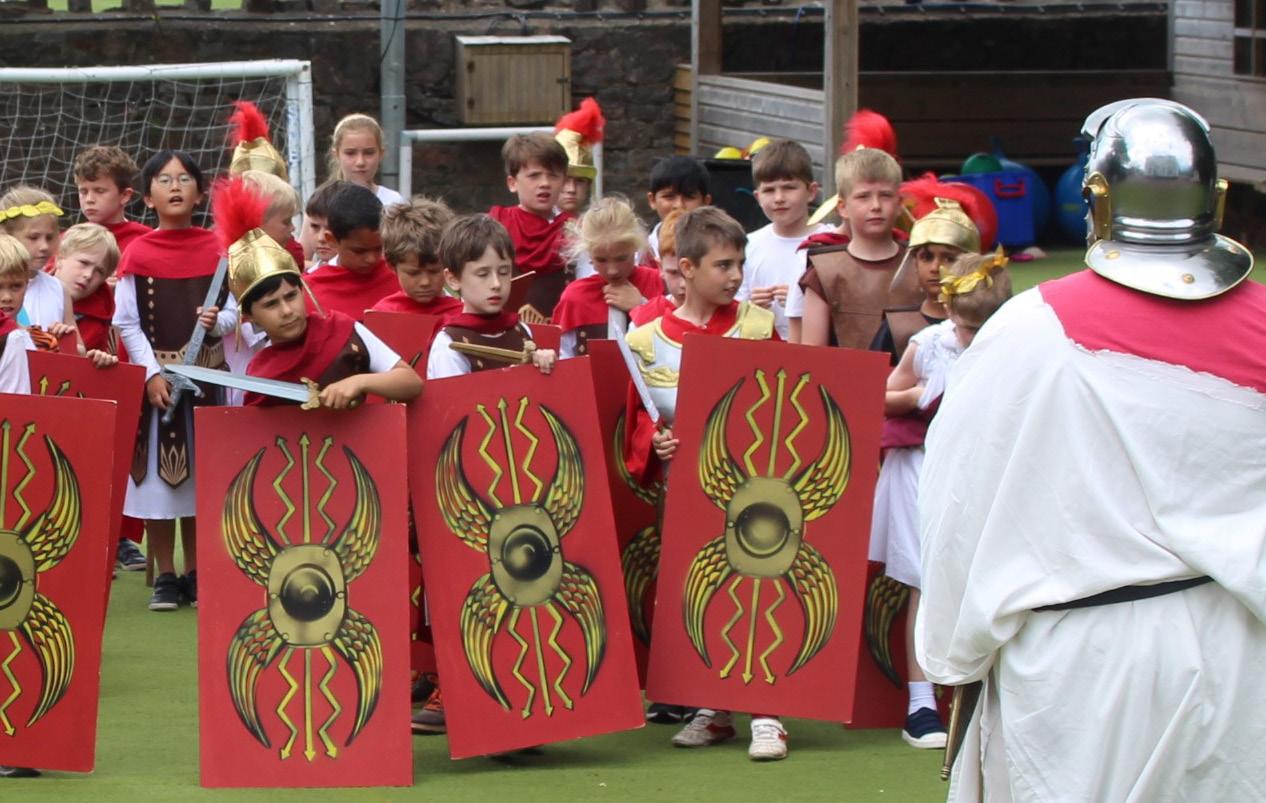SIXTH FORM Annual Review
Natasha Devon On 20 April the Lower Sixth had a virtual talk from Natasha Devon MBE, a body image and mental health campaigner. by
JOANNA REYNOLDS
N
atsaha Devon founded the Mental Health Media Charter and is a trustee of Student Minds and a patron for No Panic, as well as being a member of other equality and health organisations. She has also authored books, such as Yes You Can (Ace Your Exams Without Losing Your Mind), and contributed to others, for example Life Honestly: Strong Opinions from Smart Women. Devon also has a weekly radio show on LBC on Saturday from 7-9 pm, as well as writing for newspapers and magazines. She wanted to base her talk to us on topics we wanted information about, so asked us to anonymously send in our questions so that she could answer them within her talk. Many questions were sent in; she categorised them into four main groups and answered the most relevant questions within those groups. Her four main questions were about finding time to look after mental health while also dealing with schoolwork, how to cope with stress, worry and anxiety, how far body positivity can go before it becomes unhealthy, and how to know when anxiety has reached the point where we should tell someone. How can I balance looking after my mental health with my schoolwork? Natasha Devon started by explaining that we don’t have to separate the two things. While you do your homework, you can be doing so in a way that helps you finish it efficiently and with low stress. She explained about how people tend to be most focused at the beginning and ends of a session of work, so suggested cutting down work sessions (especially revision) into smaller increments, perhaps of 25 minutes, with a small break in between them, to maximise the time you are focused and alert. In the break times, she proposed doing something relaxing, such as a 10 The Exonian 2021
creative activity. During work sessions, it is helpful to turn phone notifications off as even if you spend a short amount of time on your phone, responding to messages stops your train of thought and you are therefore required to spend more time getting back to your homework or revision. Trying not to procrastinate also means that you will have more free time in the long run, and it will be more fulfilling as you won’t have work to worry about. Devon encouraged us to organise a specific time for work and to tell our friends when this is so that they know we are unable to use social media at that point. What methods would you suggest to cope with stress and anxiety? One thing I found helpful was a method she suggested of using three sheets of paper to write down worries – one for worries you yourself can control, one for worries other people can control, and one for worries outside of your control. After writing the third one, tear it up or burn it (in a safe environment) to symbolise that you won’t worry about those anymore, as no one can control them – then work on solving the worries on the other two bits of paper. Devon also talked about having
‘what if ’ statements in regard to worst-case scenario thoughts (she also called it ‘catastrophic thinking’). She suggested we try to replace those ‘what if ’ questions with evidencebased statements such as ‘the worst case scenario is only one out of many outcomes’. I found this statement particularly helpful, as I often have negative thoughts in social situations due to my feelings of social anxiety, but reminding myself that my ‘what if ’ thoughts are not the reality helps me feel a lot more comfortable when talking to people. Natasha Devon also talked to us about the amygdala, the emotional part of the brain, which doesn’t know the difference between ‘a bear is chasing me’ and ‘I’m about to start an exam’, and is in charge of our natural fight, flight or freeze mode. We need to train the more developed part of our brains to spot this and rationalise our thoughts. Don’t suppress these thoughts, as if you do they’ll only become more prominent – let them come and then tell yourself why they’re wrong. How far can body positivity go before it becomes unhealthy? To respond to this, Devon began by explaining that you can love your body while also being healthy – going as far as to say that if you love your body, you will want to be healthy, as you will treat your body with respect. She gave examples of people who exemplify this, including a sportsperson who became unhealthy after an injury but rediscovered their love of sport gradually, a former health influencer who left their job, and someone who was trapped in a cycle of losing weight then regaining it as they didn’t enjoy their calorie-based diet. After explaining about the last person, Natasha Devon explained that she found calorie-based diets unhelpful, as the majority of them fail. I found
















































